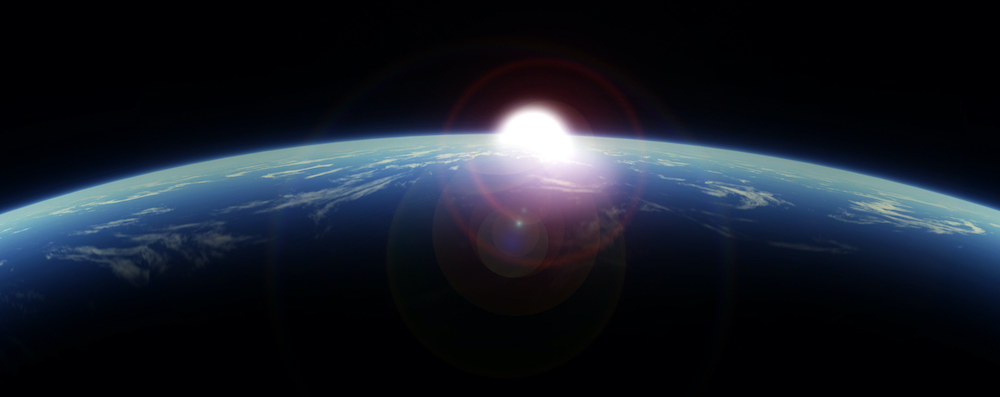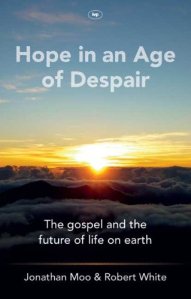
© Gilderm, www.sxc.hu
The Christian church is not always the first place environmentalists run to when faced with a potentially global catastrophe. Nevertheless, Christian theology provides a sound basis for caring for the planet we live on, and also for living constructively in a time of uncertainty and worsening climate conditions. On the 21st June, Jonathan Moo and Robert White’s book, Hope in an Age of Despair will be published by IVP. The premise of the book is that the Christian ‘Gospel’ message affects all of creation*, and is about the way we live now as well as our hope for the future.
For Christians, creation is valuable because it is valuable to God. The whole world was declared ‘good’ in Genesis, so the ‘products’ of land and sea have an intrinsic worth that goes far beyond their economic value. Of course we do use and enjoy what we find in the world, and that’s a good thing in moderation.
A quick look at human history or the state of one’s own heart shows that we are often selfish and abuse our privileges. That abuse has led to the current crisis of biodiversity loss, pollution and climate change. So what’s the solution – hope for ‘the end of the world’ to come quickly so we can all be whisked off to heaven? Thankfully Moo and White outline a more sensible solution than sticking our heads in the sand. They go back to the foundations of Christianity and look at how the teaching of Jesus embraces the whole of creation.
Typical summaries of the ‘Gospel’ (Old English for good news) are centred on an individual’s commitment to God, which can be a good thing, but as a result we often miss the bigger picture of what Jesus came to do. When he began his ministry Jesus applied these words from Isaiah to himself: ‘The Spirit of the Sovereign Lord is on me, because the Lord has anointed me to proclaim good news to the poor. He has sent me to bind up the broken-hearted, to proclaim freedom for the captives and release from darkness for the prisoners, to proclaim the year of the Lord’s favour.’ With Jesus, God begins to realise his plans for the whole earth – a process that started thousands of years earlier – and offer us a rescue from the consequences of our actions. Through his death and resurrection Jesus made it possible for us to restore our relationship with God, and through the Holy Spirit acting in his people God began to restore the earth – a process that will only be completed when Jesus comes again.

So the story of the Gospel begins with God creating, continues with him ruling over his creation, and will end when he judges sin, evil and injustice. After that there’s the ‘new creation’, a restored physical world that no longer suffers from disease and decay. As Moo and White say, ‘This good news is for the whole of the earth. It reveals the way in which God’s purposes for all of creation are accomplished in Christ, the means by which a world racked by sin and corruption is renewed and restored to its creator.’
Whatever your take may be on the Christian faith, I want to get across the crux of Moo and White’s book; that the message of Christianity is both oriented towards future hope, AND grounded in responsible action in the present. After a survey of the current condition of the earth, the bulk of the book is given over to explaining the biblical perspective on ‘the new heavens and the new earth’ and how that should shape our action now. I think it will be a valuable addition to the bookshelf of both Christians and environmentalists (and especially Christian environmentalists). Available for £8 from the Faraday online shop.
* A word that Christians use for nature, not necessarily connected to anti-evolutionary views. I prefer to use ‘creation’ wherever possible because ‘nature’ carries connotations of being something without God, in the sense of the natural/supernatural divide.




